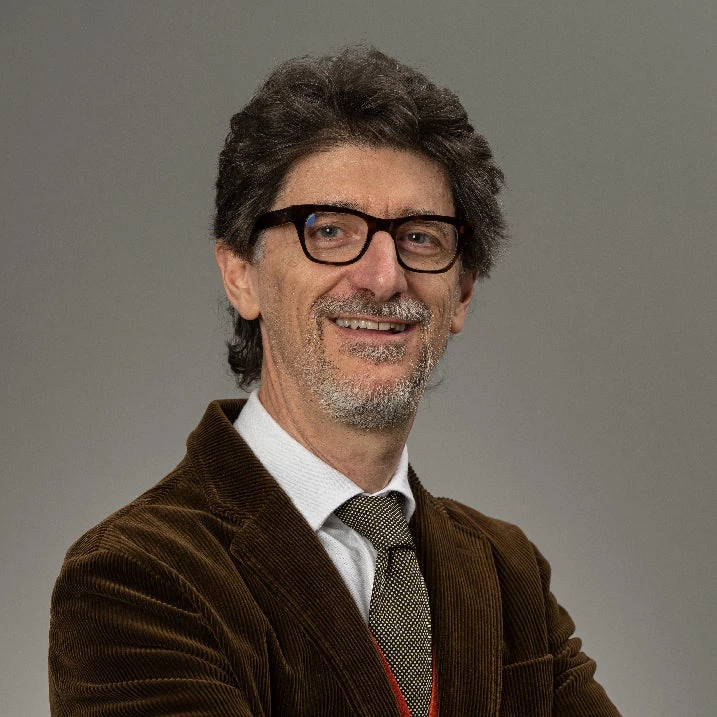
We economists did not see the 2008 global financial crisis coming.
Nor did we anticipate, predict or, at least, warn people about the current wave of anti-trade, anti-immigration, and populism!?
To be fair, some economists were sounding alarms in the lead-up to the financial crisis. And even with the current backlash, although we may have missed the chance to predict it, many had warned that we were understating the impacts of global trade and that distributional tensions - the result of an unequal impact of globalization, technological change, and aging on certain groups - were mounting.
It seems very important – especially when considering the ongoing fierce rhetoric with which some policy proposals and decisions are described – to remain cool-headed, carefully analyze data, stay engaged and support reforms that are backed by solid evidence.
As part of this effort to remain engaged, we held a conference, together with the Organization for Economic Cooperation and Development, and the European Commission on the theme: “The Squeezed Middle Class and a New Social Contract.” Important questions arose in the context of this forum: what are the key distributional tensions impacting the stability of the social contract? Which factors may be increasing these tensions? Which policy responses should be advocated?
Clearly we did not get all the answers, but we made good progress. Rather than summarizing the many interesting discussions we had during the conference, I’d like to highlight three reflections I came away with:
- policies matter, and bad policies have far reaching consequences;
- we shouldn’t forget that, at the global level, the middle class has enjoyed strong economic growth for more than two decades and;
- it is not all just economics – other disciplines can help inform economics.
I will start by discussing why policies matter (and follow up on the other two reflections in subsequent blogs).
Policies are relevant and, although it may be difficult to pinpoint causality, polices are likely to be behind some of the distributional problems we are observing today, as well as behind some of the progress the world as a whole has achieved (more on this in my next blog). And policies can also be potential remedies, or at least partial solutions.
Consider, for example, globalization. A nice way to picture globalization is to think of what Richard Freeman called the ‘great doubling’ of the labor force. Towards the end of the 1990s, China, India and the former-Soviet bloc joined the global economy in a very short period of time and, as a consequence, the global labor market doubled from 1.46 billion people to 2.93 billion. This, Freeman said, is ‘the greatest challenge [for the United States] since the Great Depression,’ and argued that unless that country adjusts well, the next several decades ‘will exacerbate economic divisions and risk turning much of the country against globalization.’ He was referring to the US, but the same can be said for other western economies.
What is behind the great doubling (or globalization)?
Policies.
They clearly started the process: the Soviet bloc integrated with global markets soon after the fall of the Berlin Wall, India dismantled trade barriers and opened to international flows, and China advanced its integration joining the World Trade Organization in 2001.
Another example comes from Latin America, a region that experienced a strong reduction in inequality in the 2000s – a time when inequality was either stable or on the rise in most other parts of the world. Once again, policies – in particular education policies and conditional cash transfers – paved the way. While much work remains to be done, education expansion played a role in reducing the skills premium and, thus, inequality.
Or consider the Middle East and North Africa (MENA) region, the region of the Arab Spring. Inequality had not been going up before 2010, but people perceived that they had no opportunities and that even having high education did not open doors to stable and good jobs. As discussed by Elena Ianchovichina at the conference, large and distortionary energy subsidies together with protection of certain industries stifled growth generating an unsustainable situation that spiraled towards the revolts.
History does not necessarily repeat itself, but policies, for sure, will matter in the future too. Rather than reverse policies that worked well in the past, we should instead complement them with some new interventions. Jean-Ives Duclos, the Canadian Minister of Families, Children and Social Development, opened the conference with an uplifting presentation that showcased what his office is doing to implement a ‘new, ambitious plan for a strong and growing middle class.’ In short, Canada is implementing a more progressive system of taxation, introducing a universal basic income, and making pensions more valuable for low income families.
The minister also highlighted that economists, when discussing justice, tend to focus on outcomes instead of processes. Citizens want to be heard, want to participate in the decision-making process, and want to be involved in implementation. Making the process inclusive, he argued, is a key for achieving more equitable growth.
Closing remarks from Francois Bourguignon and Mark Fleurbaey on the second day of the conference echoed this discussion: fair access to income-generating opportunities and the role of public institutions in reducing risk for everyone should be the key priorities for a new social contract.
So looking at the past we can see that policies matter. Bad interventions had far reaching consequences, while well implemented balanced reforms can make a difference and lift people from poverty and boost welfare for many people. Countering the populists’ quick judgment of past policies as mistakes and promise of easy fixes is not going to be easy, but as economists we need to warn about the fallacies, and be helpful in exploring and testing solutions.
Next week, I will talk about my second reflection, the global perspective on the middle class ( now available here!)


Join the Conversation